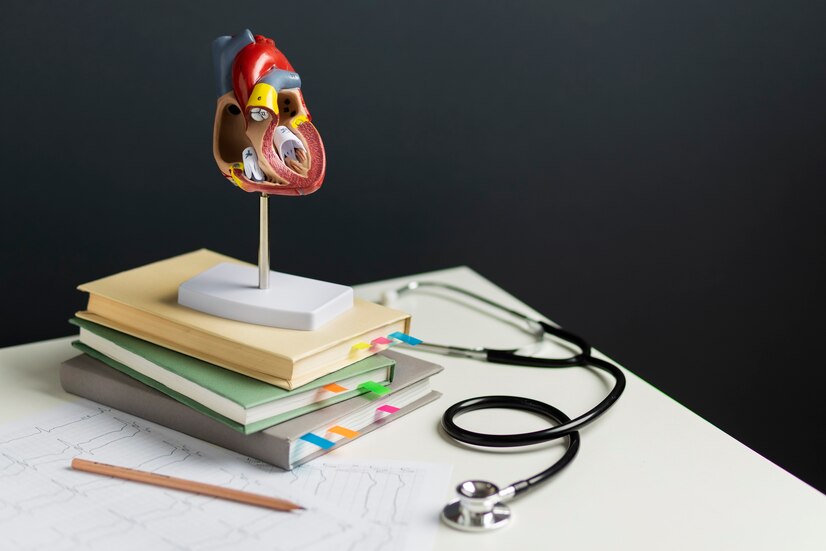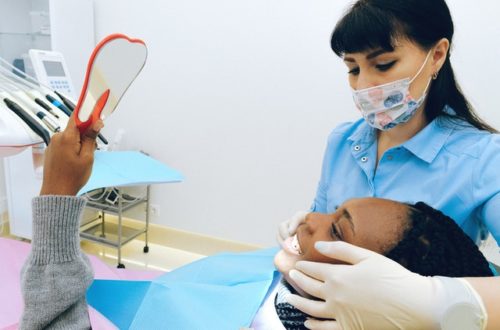
Cardiologist Chronicles: Breakthroughs In Heart Health Technology
The Importance Of Advancements In Cardiology
In the ever-evolving field of medicine, the advancements in cardiology have been nothing short of remarkable. Heart health has long been a critical concern, with cardiovascular diseases remaining a leading cause of morbidity and mortality worldwide. However, the recent breakthroughs in heart health technology are revolutionizing how we approach cardiovascular care, offering new hope and improved patient outcomes.
The importance of these advancements cannot be overstated. Cardiovascular diseases, such as heart attacks, strokes, and congestive heart failure, place a significant burden on both individuals and healthcare systems. Early detection, accurate diagnosis, and effective treatment are crucial in mitigating the devastating impact of these conditions. Integrating cutting-edge technologies into cardiology has opened up new avenues for enhancing patient care, from improved diagnostic capabilities to personalized treatment plans and enhanced long-term monitoring.
As we delve into the exciting world of heart health technology, we must recognize the profound impact these innovations can have on patients and healthcare professionals who dedicate their careers to improving cardiovascular health. By exploring the latest breakthroughs and understanding their potential, we can gain a deeper appreciation for the transformative power of innovation in cardiology.
Key Breakthroughs In Heart Health Technology
The list of groundbreaking advancements in heart health technology is ever-expanding. From revolutionary imaging techniques to the integration of artificial intelligence (AI) and the rise of telemedicine, the landscape of cardiovascular care is undergoing a remarkable transformation.
One of the most significant breakthroughs in recent years has been the development of advanced cardiac imaging technologies. Techniques like 3D echocardiography, cardiac CT scans, and magnetic resonance imaging (MRI) have revolutionized how cardiologists visualize and assess the structure and function of the heart. These cutting-edge imaging modalities provide healthcare professionals with unprecedented levels of detail, allowing them to detect even the most subtle abnormalities with greater accuracy. This enhanced diagnostic capability has been instrumental in the early identification of heart conditions, enabling timely interventions and improved patient outcomes.
Another groundbreaking development in heart health technology is integrating artificial intelligence (AI) into cardiac diagnostics. By leveraging the power of machine learning algorithms, AI-powered systems can analyze vast amounts of data, including patient records, medical images, and genetic profiles, to identify patterns and predict potential heart problems with remarkable accuracy. This enhances early detection and assists cardiologists in designing personalized treatment plans tailored to each patient’s unique needs. The integration of AI has the potential to revolutionize the field of cardiology, streamlining diagnostic processes and empowering healthcare professionals to provide more personalized and effective care.
Wearable Devices For Heart Monitoring
Wearable technology has profoundly impacted cardiology, transforming how patients monitor and manage their heart health. These innovative devices, ranging from smartwatches to specialized cardiac monitors, have become invaluable tools in the fight against cardiovascular diseases.
One of the most notable advancements in wearable heart health technology is the development of continuous cardiac monitoring devices. These compact, unobtrusive wearables are designed to track vital signs, including heart rate, variability, and even electrocardiogram (ECG) readings. By providing real-time data, these devices empower patients to monitor their heart health actively, allowing them to detect irregularities or changes in their condition promptly. This early detection can be crucial in triggering timely medical interventions, potentially preventing more serious complications from arising.
Moreover, integrating wearable devices with mobile applications and cloud-based platforms has revolutionized how healthcare providers interact with their patients. Cardiologists can now remotely access and analyze the data collected by these devices, enabling them to monitor their patient’s health status continuously and make informed decisions about treatment plans. This seamless exchange of information between patients and healthcare providers can enhance patient engagement, improve medication adherence, and ultimately lead to better health outcomes.
Artificial Intelligence In Cardiology
Integrating artificial intelligence (AI) into cardiology has been a game-changer, revolutionizing how healthcare professionals approach cardiac diagnostics and patient care. By harnessing the power of machine learning algorithms, AI-powered systems can analyze vast amounts of data, including patient records, medical images, and genetic profiles, to identify patterns and predict potential heart problems with remarkable accuracy.
One of the most significant applications of AI in cardiology is its ability to enhance early detection of cardiovascular diseases. AI algorithms can scour through medical images, such as echocardiograms and cardiac CT scans, to identify subtle abnormalities the human eye may have missed. This advanced detection capability allows healthcare providers to intervene at earlier stages, potentially preventing the progression of heart conditions and improving patient outcomes.
Furthermore, AI-powered systems can assist cardiologists in designing personalized treatment plans tailored to each patient’s unique needs. These AI-driven systems can recommend the most appropriate therapies, medications, and lifestyle modifications by analyzing a patient’s medical history, genetic data, and real-time monitoring information. This personalization level improves treatment effectiveness and enhances patient engagement and adherence, ultimately leading to better long-term outcomes.
Telemedicine And Remote Patient Monitoring
The COVID-19 pandemic has accelerated the adoption of telemedicine and remote patient monitoring technologies in cardiology, revolutionizing how healthcare providers deliver care to their patients. These advancements have improved access to specialized cardiovascular services and enhanced the overall quality of care for cardiac patients.
Telemedicine, the practice of providing medical care remotely through digital platforms, has become an invaluable tool in managing cardiovascular diseases. Cardiologists can now conduct virtual consultations, review diagnostic test results, and adjust treatment plans without needing in-person visits. This convenience has been particularly beneficial for patients with mobility challenges, those living in remote or underserved areas, and those who require frequent follow-up care.
Remote patient monitoring systems have further enhanced the capabilities of telemedicine in cardiology. These advanced technologies, such as wearable devices and home-based monitoring equipment, allow healthcare providers to track patients’ vital signs, physical activity, and other relevant health data in real time. By continuously monitoring their patients’ health status, cardiologists can identify potential issues early and intervene promptly, reducing the risk of hospital readmissions and improving overall health outcomes.
Robotic-Assisted Surgery In Cardiology
Cardiology has also witnessed remarkable advancements in surgical interventions with the emergence of robotic-assisted surgery. This innovative technology has transformed cardiac procedures, offering patients and healthcare providers numerous benefits.
Highly sophisticated robotic systems enable robotic-assisted cardiac surgery, which allows surgeons to perform complex procedures with greater precision, flexibility, and control. These advanced robotic platforms, equipped with high-definition cameras and miniaturized instruments, enable surgeons to access the heart through smaller incisions, resulting in less invasive procedures. This minimally invasive approach translates to reduced trauma, faster recovery times, and improved patient outcomes.
Furthermore, integrating robotic-assisted technology has enhanced the surgeon’s ability to perform delicate and intricate procedures with improved agility and visualization. Procedures such as coronary artery bypass grafting, heart valve repairs, and even heart transplants can now be carried out with greater accuracy and efficiency, ultimately leading to better patient safety and improved long-term outcomes.
Future Prospects And Emerging Trends In Heart Health Technology
As cardiology continues to evolve, the future holds even more exciting advancements in heart health technology. From the continued refinement of existing technologies to the emergence of innovative solutions, the landscape of cardiovascular care is poised for remarkable transformations.
One emerging trend in heart health technology is the increasing integration of genomics and personalized medicine. By leveraging the power of genetic analysis, healthcare providers can gain deeper insights into an individual’s predisposition to cardiovascular diseases, enabling more targeted prevention and treatment strategies. This personalized approach to cardiac care will empower patients to take a more proactive role in managing their heart health, leading to improved long-term outcomes.
Additionally, the continued advancements in wearable technology and remote monitoring systems are expected to play a pivotal role in the future of cardiology. As these devices become more sophisticated and user-friendly, they will give patients unprecedented control over their heart health, allowing them to track their vital signs, detect early warning signs, and communicate with their healthcare providers in real time. This seamless integration of technology and patient engagement will revolutionize how cardiovascular care is delivered, fostering a more collaborative and proactive approach to disease management.
Implications Of Heart Health Technology For Patients And Healthcare Providers
The breakthroughs in heart health technology have far-reaching implications for patients and healthcare providers, profoundly transforming the landscape of cardiovascular care.
Advancements in cardiac diagnostics, treatment, and monitoring can significantly improve patients’ overall health and quality of life. Early detection of heart conditions, personalized treatment plans, and continuous monitoring can lead to better outcomes, reduced hospitalizations, and improved long-term prognosis. Moreover, integrating telemedicine and remote patient monitoring has enhanced access to specialized cardiac care, particularly for individuals living in underserved or remote areas.
These technological advancements have empowered healthcare providers to deliver more efficient, accurate, and personalized patient care. Integrating artificial intelligence and advanced imaging techniques has enhanced their diagnostic capabilities, allowing for earlier intervention and more effective treatment strategies. Furthermore, the seamless data exchange between patients and healthcare providers through remote monitoring systems has facilitated better communication, improved medication adherence, and more proactive management of cardiovascular conditions.
Conclusion: The Impact Of Breakthroughs In Heart Health Technology
The advancements in heart health technology have undoubtedly revolutionized the cardiology field, offering new hope and improved outcomes for patients suffering from cardiovascular diseases. From cutting-edge imaging techniques to the integration of artificial intelligence and the rise of telemedicine, these breakthroughs have transformed how we approach cardiac care.
As we continue to witness the rapid evolution of heart health technology, it is clear that the future of cardiovascular medicine holds even more exciting possibilities. The integration of personalized medicine, the refinement of wearable devices, and the continued advancements in robotic-assisted surgery will undoubtedly shape the landscape of cardiac care.
The profound impact of these technological breakthroughs extends far beyond the clinical setting. These innovations empower patients and healthcare providers, enhancing patient engagement, improved long-term outcomes, and a more collaborative approach to cardiovascular disease management. As we embrace these advancements, we can look forward to a future where heart health is better understood, more effectively managed, and ultimately, a pathway to a healthier, more vibrant life.



